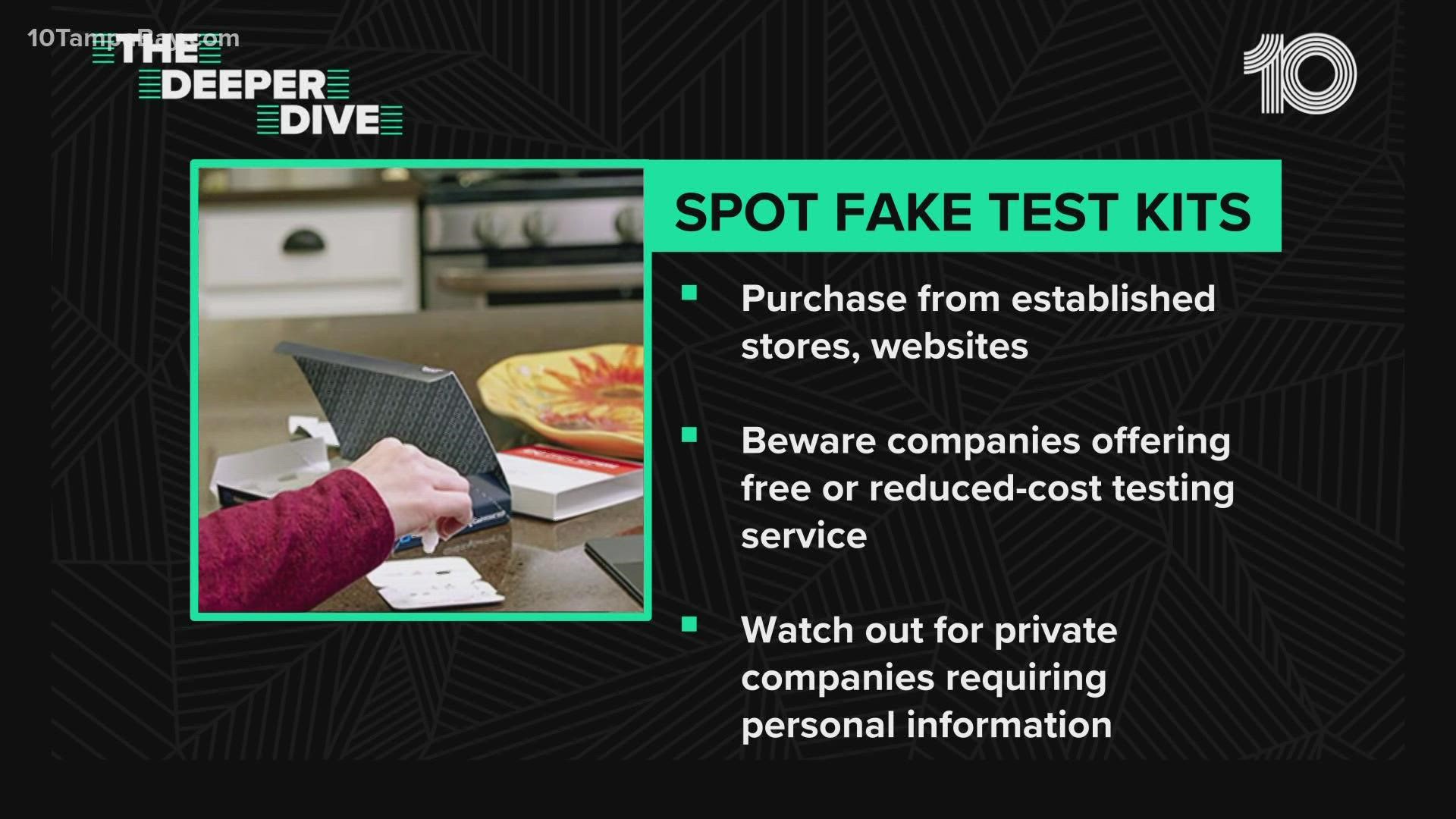FLORIDA, USA — Before using your next at-home COVID-19 testing kit, you may want to double-check where exactly you got it from.
> Looking for an FDA-approved at-home COVID test, click here for the legitimate government website.
On Thursday, Florida Attorney General Ashley Moody issued a consumer alert warning people of fake test kits and sites that are preying on the recent rise in cases due to the omicron variant. Moody says scammers may be looking to exploit this unprecedented demand in order to steal personal information.
The attorney general points to recent reports in Florida and across the nation of fake testing sites, imposter health care workers at legitimate sites and at-home testing scams.
"With the recent rise in the number of people seeking COVID-19 tests comes an increased risk that scammers will try to take advantage of the demand," Moody said in a statement. "Please take precautions to protect your personal information when seeking a test — whether at a legitimate site or when purchasing an at-home test.”
So, before buying that testing kit, Moody says to follow these steps to make sure it's legit:
- Only purchase products from well-established stores or websites.
- Search for the brand name of the test and see if there were any previous complaints.
- Beware of companies that offer free or reduced-cost at-home testing services, particularly if those companies require private information to make an appointment.
- Watch out for private companies that require personal information to sign up for an at-home testing service but will not guarantee an appointment time.
Besides at-home scams, the attorney general also offers up some things to keep an eye on to verify the legitimacy of a pop-up testing site:
- Having no affiliation with local medical providers or government entities.
- Not delivering test results.
- Workers seem uninformed about the testing process.
- Volunteers that are unmasked or not following current Center for Disease Control and Prevention point-of-care guidelines and the Occupational Safety and Health Administration’s standards during interactions with patients.
If you come across a testing-site imposter, make sure to ask:
- Are they dressed the same as the other health care workers on-site?
- Are they interacting with test seekers within the established test-site area?
- Can they accurately and correctly answer questions without seeming nervous or confused?
- Do they pressure test seekers for personal or financial information?
- Are health care guidelines and standards being followed?
If you suspect a COVID testing scam, you are asked to contact local law enforcement, or the Florida Attorney General's Office by calling 866-966-7226.

